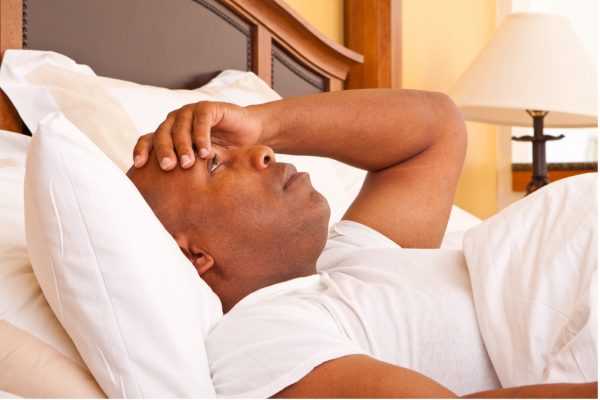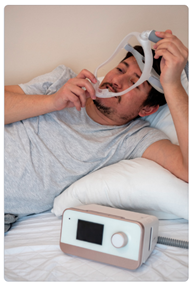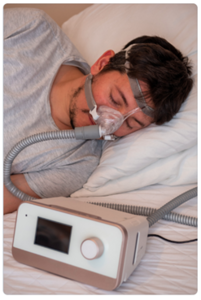CPAP Sleep Apnea Machines
CPAP Sleep Apnea Machines –
What They Are and How They Work :
If you suffer from obstructive sleep apnea, you will probably have heard about CPAP therapy. CPAP stands for continuous positive airway pressure, and is a common treatment for sleep apnea. The therapy involves using CPAP Sleep Apnea machines that deliver a constant and steady flow of positive air pressure either through a face-mask or a nosepiece. It keeps your airway open while you sleep.
CPAP therapy is effective for reducing the symptoms of sleep apnea, such as snoring and daytime sleepiness. However, it can also come with its own set of challenges. Some common issues include a leaky mask, dry mouth, and difficulty falling asleep. Fortunately, there are ways to overcome these challenges and get the most out of your CPAP therapy.
If you are considering CPAP therapy or are already using a CPAP machine, it is important to understand how it works and what to expect. In this article, we will explore the ins and outs of CPAP therapy, including how it works, the benefits and drawbacks, and tips for getting the most out of your treatment.
Understanding CPAP Sleep Apnea Machines
CPAP Machine Explained
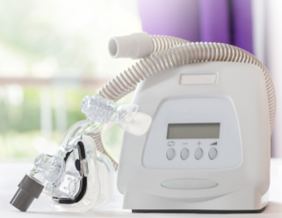 If you have been diagnosed with obstructive sleep apnea (OSA), your doctor may have recommended continuous positive airway pressure (CPAP) therapy. CPAP therapy involves using a CPAP machine that delivers a continuous flow of pressurized air through a mask, which you wear during sleep. The airflow helps keep the airway open, preventing pauses in breathing and promoting uninterrupted sleep.
If you have been diagnosed with obstructive sleep apnea (OSA), your doctor may have recommended continuous positive airway pressure (CPAP) therapy. CPAP therapy involves using a CPAP machine that delivers a continuous flow of pressurized air through a mask, which you wear during sleep. The airflow helps keep the airway open, preventing pauses in breathing and promoting uninterrupted sleep.
A CPAP machine consists of several components, including a motor that generates the airflow, a humidifier that adds moisture to the air, a filter that removes impurities from the air, and tubing that connects the machine to the mask. The mask may cover your nose, mouth, or both, depending on the type of mask prescribed by your doctor.
How CPAP Works
CPAP therapy works by creating a continuous flow of air that acts as a splint to hold open the airway, preventing it from collapsing during sleep. The pressure of the air is determined by your doctor based on the severity of your sleep apnea and is typically measured in centimeters of water (cmH2O). Most CPAP machines have a range of pressure settings that can be adjusted to meet your individual needs.
When you first start using a CPAP machine, it may take some time to get used to wearing the mask and the sensation of the pressurized air. It is important to be patient and persistent, as CPAP therapy is the most effective and widely used treatment for OSA.
Test Your CPAP Sleep Apnea Machine Regularly
To ensure that your CPAP therapy is working as it should, it is important to monitor the machine readings, including AHI (apnea-hypopnea index), leak, pressure, and usage. Your doctor may also recommend periodic sleep studies to evaluate the effectiveness of your CPAP therapy and make any necessary adjustments.
Overall, CPAP therapy is a safe and effective treatment for OSA that can significantly improve your quality of life. With the right equipment and support, you can successfully manage your sleep apnea and enjoy restful, refreshing sleep.
CPAP Machine Components
When it comes to CPAP machines, there are three main components: the mask, the hose, and the machine itself. Each of these parts plays an important role in ensuring that you receive the proper amount of pressurized air to keep your airway open throughout the night.
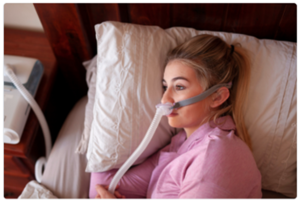 The Role of CPAP Mask
The Role of CPAP Mask
The CPAP mask is perhaps the most important component of the machine. It is the part that fits over your nose and/or mouth, creating a seal that allows the pressurized air to enter your airway. There are several different types of masks available, including:
- Nasal masks: These masks cover only your nose, and are the most popular type of mask.
- Full-face masks: These masks cover both your nose and mouth, and are ideal for people who breathe through their mouth while sleeping.
- Nasal pillow masks: These masks have small pillows that fit into your nostrils, and are a good option for people who find traditional masks uncomfortable.
When choosing a mask, it’s important to find one that fits well and is comfortable to wear. A poorly fitting mask can cause air leaks, which can reduce the effectiveness of the therapy and lead to discomfort during the night.
In addition to the type of mask, you’ll also need to consider the size and shape of the mask. Most masks come in a range of sizes, and it’s important to find one that fits your face properly. Some masks also have adjustable straps or headgear, which can help you get a better fit.
Overall, the mask is a crucial component of the CPAP machine. It’s important to take the time to find the right mask for you, as it can make a big difference in the effectiveness and comfort of your therapy.
CPAP and Oxygen
If you have sleep apnea, you may be wondering if you need oxygen in addition to your CPAP machine. In some cases, oxygen therapy can be used in conjunction with CPAP to provide better treatment for certain conditions.
CPAP Sleep Apnea Machines and Oxygen Use
CPAP machines do not use oxygen. Instead, they use air pressure to keep your airway open while you sleep. However, if you have low blood oxygen levels, your doctor may recommend using oxygen therapy in addition to your CPAP machine. This is because low blood oxygen levels can cause a range of health problems, including high blood pressure and heart disease.
Adding Oxygen to CPAP
If you need oxygen therapy in addition to your CPAP machine, there are a few ways to add oxygen to your treatment:
- Oxygen concentrator: An oxygen concentrator is a device that takes in air and removes nitrogen to provide concentrated oxygen. You can connect your CPAP machine to an oxygen concentrator to receive both treatments at the same time.
- Oxygen cylinder: An oxygen cylinder is a tank that contains compressed oxygen. You can connect your CPAP machine to an oxygen cylinder using a special adapter.
- BiPAP machine: A BiPAP machine is similar to a CPAP machine, but it provides two levels of air pressure: one for inhaling and one for exhaling. Some BiPAP machines also have the ability to provide oxygen therapy.
It’s important to talk to your doctor before adding oxygen therapy to your CPAP treatment. They can help you determine if you need oxygen therapy and which type of device is best for your needs.
Remember, oxygen therapy is not always necessary for sleep apnea treatment. Only use it if your doctor recommends it.
Benefits of CPAP Sleep Apnea Machines
If you have obstructive sleep apnea, using a CPAP machine can have several benefits. Here are some of the proven benefits of using a CPAP machine:
Proven Benefits
- Better sleep: CPAP therapy can help you get better quality sleep by reducing the number of times you wake up during the night. This can help you feel more rested and alert during the day.
- Reduced snoring: CPAP therapy can reduce or eliminate snoring, which can improve your sleep quality and your bed partner’s sleep quality.
- Lowered blood pressure: Studies have shown that CPAP therapy can lower blood pressure, even if you did not have high blood pressure before starting treatment.
- Improved heart health: CPAP therapy may improve cardiovascular health in people with obstructive sleep apnea, though more research is needed.
- Reduced risk of accidents: CPAP therapy can reduce the risk of accidents caused by daytime sleepiness.
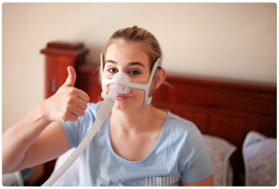 Effectiveness of CPAP Machines
Effectiveness of CPAP Machines
CPAP machines are highly effective at treating obstructive sleep apnea. They work by delivering a continuous stream of pressurized air through a mask, which keeps your airway open while you sleep. CPAP machines have been shown to:
- Reduce daytime sleepiness
- Improve quality of life
- Reduce the risk of heart disease and stroke
- Improve glucose control in people with diabetes
- Improve cognitive function
Overall, using a CPAP machine can have significant benefits for people with obstructive sleep apnea. While it may take some time to adjust to using a CPAP machine, the benefits are well worth it.
Specialized CPAP Sleep Apnea Machines
If you’re looking for a CPAP machine that caters to specific needs, there are several specialized options available. One such option is a 12-volt CPAP machine, which is perfect for camping or other outdoor activities where access to electricity may be limited.
12 Volt CPAP Machines
A 12-volt CPAP machine is designed to be used with a 12-volt battery, making it ideal for use in an RV or camping. These machines are also great for people who live in areas with frequent power outages or who need a reliable backup power source for their CPAP machine.
When choosing a 12-volt CPAP machine, it’s important to consider the following factors:
- Battery life: Make sure the battery has enough capacity to last for the duration of your trip or power outage.
- Compatibility: Check that the machine is compatible with your CPAP mask and tubing.
- Noise level: Look for a machine that operates quietly, especially if you’re using it in close quarters with others.
- Portability: Consider the weight and size of the machine, as well as whether it comes with a carrying case or other accessories to make it easier to transport.
One example of a 12-volt CPAP machine is the Transcend Auto miniCPAP with EZEX. This machine is small and lightweight, making it easy to take with you on the go. It also features an EZEX pressure relief system, which reduces pressure during exhalation for a more comfortable experience.
Another option is the Apex XT Auto CPAP machine, which offers advanced features like automatic altitude adjustment and leak compensation. It also has a built-in humidifier to help keep your airways moist and comfortable during use.
Overall, a 12-volt CPAP machine can be a great option for people who need a portable, reliable CPAP solution. Just be sure to choose a machine that meets your specific needs and preferences.
Frequently Asked Questions
What are the long-term side effects of using a CPAP machine?
Using a CPAP machine for an extended period of time has no known long-term side effects. However, some users may experience minor side effects such as nasal congestion, dry mouth, or irritation from the mask.
What are the advantages and disadvantages of using a CPAP machine?
The advantages of using a CPAP machine include improved sleep quality, reduced risk of sleep apnea-related health problems, and increased energy levels. The disadvantages include discomfort from the mask, difficulty adjusting to the machine, and the noise it makes
How does CPAP ventilation work?
CPAP ventilation works by delivering a continuous stream of air through a mask that covers the nose and/or mouth. The air pressure keeps the airway open, preventing the collapse of the soft tissues in the throat that causes sleep apnea.
What is the purpose of using a CPAP machine?
The purpose of using a CPAP machine is to treat sleep apnea, a condition that causes the airway to become blocked during sleep, leading to breathing difficulties and interrupted sleep.
Is CPAP more effective than oxygen therapy for sleep apnea?
CPAP therapy is more effective than oxygen therapy for sleep apnea because it addresses the root cause of the condition by keeping the airway open. Oxygen therapy only provides supplemental oxygen and does not address the underlying issue.
How can I obtain a CPAP Sleep Apnea machine and what is the cost?
You can obtain a CPAP machine with a prescription from your doctor. The cost varies depending on the type of machine and your insurance coverage. Some insurance plans may cover part or all of the cost, while others may require you to pay out of pocket.

